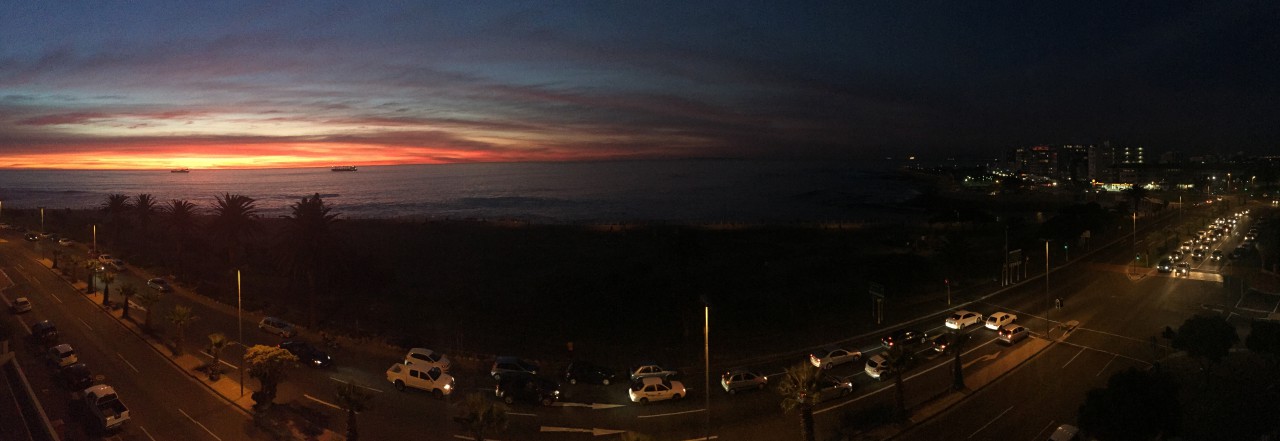I was always told by my previous employer, one David Jacobson, never to start an article by saying when and where an event or programme occurred, but rather to use an inspiring quote or something particularly interesting that happened at the event. How apt that the very person who gave me this piece of advice was to be a facilitator on the programme I’m dedicating this month’s blog to.
On the 19th of June I left the wet and windy Western Cape, boarded the plane and, some 30+ hours later, arrived in exotic Cuernavaca an hour and a half outside Mexico City. There, I embarked on a Jewish journey together with 39 other fellows from 19 different countries. From Cape Town to Columbia, Belarus to Buenos Aires, all were preparing to challenge their own ideals, identities and paradigms. But this was no ordinary conference. This was the Nahum Goldmann Fellowship (NGF), the 28th of its kind. According to its website, “The Nahum Goldmann Fellowship is a special institute aimed at nurturing a new generation of Jewish communal leadership across the world. The program(me) provides an intensive experience of Jewish learning, living and leadership for young men and women from around the world between the ages of 25-40 who show serious interest in Jewish culture and demonstrate a potential for individual growth and communal leadership.” While this description covers the basics of the Fellowship, it doesn’t fully capture what it does, what it is and what it achieves.
Now, I must admit, I came to Cuernavaca without my usual positive and cheerful attitude regarding Jewish communal life. Since Gabi and I were (and still are) blessed with our amazing Jessie – my quota of speaking about my daughter in every blog since her birth successfully achieved – my biggest Jewish contribution has been singing about God in oratorio in the Philharmonia Choir of Cape Town (I was the go-to-guy for Bernstein’s Hebrew lyrics for the Chichester Psalms). My communal involvement has been at its lowest in 15 years. And so I entered the beautiful Hosteria de las Quintas knowing that it was going to be a challenge to engage with my Jewish identity (as well as ensuring my alcohol tolerance for the delicious tequila and mezcal was not compromised). But not once did I feel resentful for being there, at this transformative space.
The theme for this year’s fellowship was Jewish communities in transformation. How apt a topic for what we are going through in our community and country right now. In South Africa we have just gone to the polls and are seeing the results of the elections coming through. We are witnessing an increasingly less tolerant and more violent society. South Africa’s transformation from an oppressive apartheid state to a relatively peaceful democracy is being challenged.
So too the Jewish community is being tested. Within the community we have the issues of Kol Isha (women not being able to sing at Jewish communal events) and the Tafelberg debacle (which perhaps needs a whole column to discuss the ins and outs). Outside of our bubble, perhaps bursting it, is the threat of BDS and its treading the fine line between anti-Zionism and antisemitism.
Throughout the Fellowship we discussed Jewish identity, the trauma and transcendence of the Jewish people, the idea of peoplehood itself. We also spoke about each community’s future scenarios. What was interesting is that many communities saw themselves as drifting further from a safe and secure environment, losing the Jewish momentum they once might have had. Our communities’ challenges and opportunities were alike in many circumstances. The close-mindedness of the community, the sense that the wealthy dictate how our community must act, and the perceived challenge of a more controlling and dogmatic Orthodox community were things many had in common.
However, what inspired me was the similarities between the fellows. Here was a group of Jewish leaders, professionals and volunteers, all expressing concerns and opportunities for their communities. Here were people who were committed to their Judaism, their Jewish identity and their ‘peoplehood’, so much so that they travelled to Mexico, not for the sun or the fun, but to learn from one another. The respect that we all gave to one another shone the light that I needed to reclaim my Judaism. There were many times when we were uncomfortable. The various methods of prayer within different denominations, political views on Israel, and even the role of Diaspora Jewry created tension. But this was a constructive discomfort, something that can build people up instead of bashing people and their identities down.
But what next? Often people come together, enter each other’s lives for a limited amount of time, make extremely close friends, but then become mere acquaintances on Facebook and perhaps Whatsapp. Are the relationships we make superficial, only going so deep as to make empty promises to one day visit each other in their country? I hope this doesn’t happen. That we engaged on such a deep level was testament to the fact that we will work with each other, building our communities together, in whatever means possible.
The NGF is an example of a safe space, so very important to the South African Jewish community. In that, mini-Nahum Goldmann programmes have been held by the Capetonian alumni from previous NGFs, breaching topics on the Israeli-Palestine conflict, transformation in the Jewish community, Jewish learning techniques, and leadership.
Difference is good. Difference changes communities positively. We have to respect each other, as it says in Pirkei Avot (1:15), “Meet every person with graciousness.” And we have to learn from each other. Without these qualities, we cannot grow as individuals, or as a community as a whole. And so, I hope that we continue to learn, grow and acknowledge that we are all part of a greater, broad and vibrant Jewish community, both here in Cape Town and across the globe.
